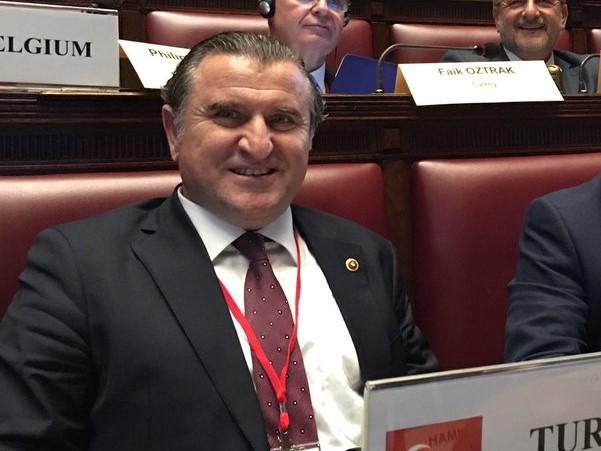Ahead of the G7 meeting hoding May 26 to 27, 2017 in Taormina, Italy, lawmakers from nations in the North Atlantic Treaty Organisation (NATO) are warning that climate change will lead to conflict and mass migration in the Middle East and North Africa, and are pressing governments to stick to their commitments under the 2015 Paris Climate Agreement, notably pledges on climate financing for developing countries.

A new report by the NATO Parliamentary Assembly calls for increased international development support focused on water and food security in the region, including measures to stabilise availability and prices of imported food.
“The long-term prospects for food and water security in the Middle East and North African region are dire,” writes Osman Askin Bak, a member of the Turkish Parliament who will present a draft report on the region’s food and water security to the NATO Parliamentary Assembly at its Spring Session in the Georgian capital, Tbilisi.
“The region is home to five percent of the global population, but has access to just one percent of the world’s renewable water supply,” he writes. “Climate change will worsen the region’s outlook.”
Competition for scarce water and food resources is already widely blamed for increasing tension in the Middle East and North Africa region. War, poor governance, demographics and climate change are all making things worse.
“It is a moral imperative to reduce hunger and thirst in the world. But it is also a strategic imperative,” stresses Philippe Vitel, a French legislator of the National Assembly, who was the author of a 2015 NATO Parliamentary Assembly report on Climate Change, International Security and the Way to Paris 2015.
“If the Middle East and North Africa cannot achieve sustainable food and water security, we will see many more crises in the years to come,” he said.
“The potential for conflict between regions affected by climate change should not be ruled out,” warns Lilja Alfredsdottir, Icelandic lawmaker and former Minister of Foreign Affairs of Iceland, who drafted a separate draft report on the costs of climate change for the NATO PA meeting.
“The refugee crisis shaking political stability throughout much of the Middle East and posing serious problems in Europe could be a harbinger of things to come,” said Alfredsdottir’s draft report. “The huge economic and social costs linked to mass movements on this scale are self-evident. It is distinctly possible that global climate challenges could trigger mass movement particularly in regions which no longer have the water and agricultural resources needed to support life.”
The NATO PA brings together more than 250 senior members of parliament from Allied nations, plus more than 20 associate and observer delegations. It serves as a vital bridge between voters and NATO leadership and is a critical forum for inter-Allied parliamentary discussions. The reports to be debated in Tbilisi are expected to lead to the Assembly adopting concrete recommendations for NATO governments later this year.
Environmental security and climate issues are on NATO’s strategic horizon. “Climate change is recognized in our strategic concept as one of the security challenges we are facing. It can cause conflicts; it can increase the number of refugees. Climate change is something that is relevant to NATO,” Alliance Secretary General, Jens Stoltenberg, told a recent NATO PA session, in response to questioning from legislators.
One of the leading experts on the economic impact of climate change is set to address the lawmakers in Tbilisi: Marshall Burke, an Assistant Professor at the Department of Earth System Science, and a Fellow at the Centre on Food Security and the Environment at Stanford University. A recent Nature article, co-authored by Burke, painted a gloomy picture: “If future adaptation mimics past adaptation, unmitigated warming is expected to reshape the global economy by reducing average global incomes roughly 23% by 2100 and widening global income inequality, relative to scenarios without climate change.”
Bak’s draft report offers hope, however. He suggested improvements in governance and resource management to alleviate the water crisis and food insecurity in the Middle East and North Africa. They include increased recycling of waste water; improved regional cooperation on agriculture and water scarcity; and harnessing renewable energy to power desalination plants.
